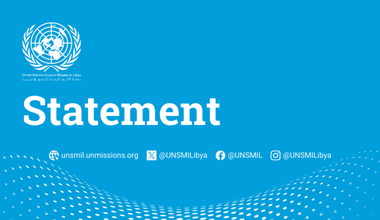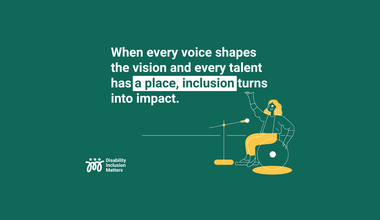UNHCR Mission to Libya launches the report “Mixed Migration Trends in Libya: Changing Dynamics”
29 March 2017 - On Wednesday 29 March, the UNHCR Mission to Libya in Tunis launched a report titled “Mixed Migration Trends in Libya: Changing Dynamics”. In addition to this report, there was also a presentation on “The Human Conveyor Belt: the industrialisation of human smuggling and trafficking in post-revolution Libya”, by guest speaker, Senior Research Fellow at the Global Initiative, Mr Mark Micallef. The high-level event was attended by members of the diplomatic corps, United Nations Agencies, NGOs and the media, among others.
Nisreen Rubaian, UNHCR Senior Protection Officer delivering the opening remarks.
Participants listen to welcome remarks by Ayah Al-Zayat, IMPACT Initiative.
Marie Cecile Darme, Altai Initiatives, Nisreen Rubaian, UNHCR, Mark Micallef, Global Initiative and Samer Haddadin, UNHCR Libya Chief of Mission.
Panel of experts from IMPACT, ALTAI Initiatives and Global Initiative.
Mark Micallef discussing with Ms. Rubaian and Mr. Haddadin at the report launch.
The survey tracks the evolution of migration trends, smuggling networks and routes to and within Libya. It also maps out refugee and migrant communities, focusing on the situation in the South of the country. Findings in the report are primarily based on qualitative data collected in Libya, Tunisia, Algeria, Italy, Niger and Chad between October and December 2016. In Libya, the research team undertook 72 interviews with key informants across the country as well as 140 interviews with refugees and migrants in key hotspots in the South and in Tripoli.
Fact finding missions were also conducted in Algeria, Italy, Niger and Chad, resulting in a total of 74 interviews with key informants, refugees and migrants. “UNHCR is dealing with the challenges of providing assistance to persons of concern in Libya. This study and others to come will go a long way in providing key information that is vital for humanitarian actors providing assistance to migrants and other persons of concern in Libya. A lot of attention is rightly given to numbers of souls that are lost at sea, but we also need to generate information and raise awareness on the perils of the ‘journey’ as a contribution to addressing this growing phenomenon,” said Samer Haddadin, UNHCR Chief of Mission to Libya. “This reports provides valuable insight on the dangerous journey migrants undertake travelling to and through Libya,” he added.
According to the European Union, in 2016, over 181,000 refugees and migrants sought to reach Europe via the central Mediterranean route, the overwhelming majority of whom departed from Libya. Other reports indicate that over 5,000 migrants died at sea in the Mediterranean - an increase of 35% compared to 2015. Between 2014 and 2016, at least 1,245 overland deaths were reported in Libya (870), Sudan (295) and Egypt (80).The report, which will be officially published in April 2017, was carried out by UNHCR in collaboration with IMPACT Initiatives and Altai Consulting. IMPACT Initiatives is a Geneva based think-and-do-tank. Meanwhile, Altai Consulting provides strategy consulting & research services supporting aid and development programs in fragile and emerging countries.
UNHCR’s primary purpose is to safeguard the rights and well-being of people who have been forced to flee. Together with partners and communities, it works to ensure that everybody has the right to seek asylum and find safe refuge in another country and strives to secure lasting solutions. UNHCR is working in Libya in a challenging context given the volatile security situation in the country. It continues, however, to provide assistance to refugees, internally displaced families, asylum seekers and an increasing number of detainees.
Despite new and prolonged waves of displacement in Libya, security constraints that hamper regular delivery of much needed life-saving assistance and the increasing use of Libya as a migratory route, humanitarian agencies remain significantly underfunded. To date, UNHCR has only received 3% of the overall USD 27.5 million required for the operation in Libya in 2017.
Media Contacts: In Tunis, Tony Aseh: aseh@unhcr.org, on mobile +216 29 174 592 In Tunis, Alberto Bolzan: bolzan@unhcr.org, on mobile +216 29 678 369 In Geneva, Julia Gouyou Beauchamps: gouyou@unhcr.org
 United Nations Peacekeeping
United Nations Peacekeeping UN
UN














